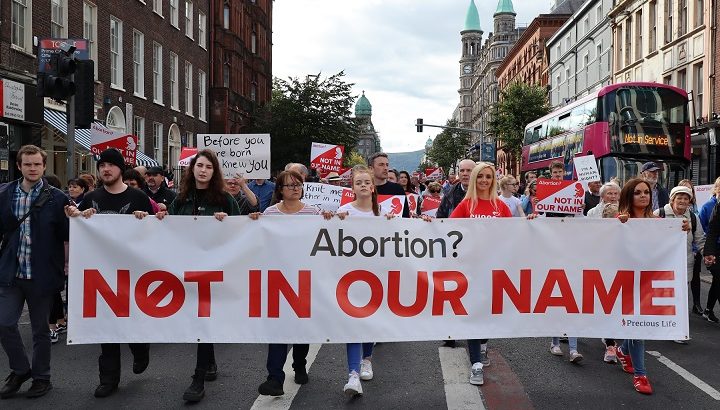The first time I was eligible to vote was in the referendum on the Good Friday Agreement in 1998. Marking an ‘X’ in the box to endorse the peace accord only took a second, but it remains one of the proudest moments of my life.
Growing up in the North, our lives were characterised by the wastefulness of the conflict. It seemed destined to go on forever, then – in the oft-quoted words of Séamus Heaney – hope and history rhymed.
Ours was to be the first generation to stand together and build a new shared future. The constitutional question about the future status of the region was parked and no single identity was exaggerated at the expense of another. People could be Irish, British, Northern Irish, Scots Ulster or any mix of the above in a broader European context.
Despite the fact that there is no functioning Executive, the Good Friday Agreement remains a remarkable achievement. It is for this reason that there is concern in both Dublin and Brussels that Britain’s decision to leave the European Union (EU) must not be allowed to affect the hard-won peace.
Delicate balance
Truth be told, Brexit has already affected the delicate balance in the North. It has increased anxiety about border infrastructure and amongst nationalists it has raised the very real prospect of being cut off from their natural hinterland. It has led many unionists to ask piercing questions about their identity and no less a figure than Baroness Eileen Paisley has raised the prospect of living happily in a unified Ireland once freedom of religion is guaranteed.
The essence of the Good Friday Agreement was that it is the people of the North – and only the people of the North – who should decide their fate. Brexit has driven a horse and cart through this as many people feel the region is being pushed out of the EU against the wishes of the majority of the people there. Ever since the Brexit vote, we have heard worthy pronouncements in Dublin, London and Brussels that nothing must affect the cross-community commitment to a shared future in the North.
And yet, many politicians remain silent the most remarkable cross-community consensus in the North at the moment: an absolute rejection of the push from Westminster to impose abortion on the region.
Over the weekend, tens of thousands of people protested on behalf of the unborn. On Friday night, more than 20,000 people stood for six minutes silence – one for each county in the North – at Stormont in defence of the unborn. The following day, a similar crowd walked through the streets of Belfast with the simple message ‘not in our name’.
The absence of the devolved institutions in the North is being cynically used by Westminster to impose abortion over the heads of both local politicians and local people. There was a firm resolve in Belfast to oppose the move, but there was also palpable anger at the overreach from London and the blatant disregard for the views of local people on display.
Meanwhile, the Irish Government – a co-guarantor of the Good Friday Agreement – is cheerleading the side-lining of local people with Simon Harris expressing his support for the imposition of abortion.
Unless an executive is functioning by October 21, Northern Ireland will become the next place where the horror of abortion is unleashed. Only an agreement between the DUP and Sinn Féin to kickstart devolution can prevent Westminster’s writ coming to pass.


 Michael Kelly
Michael Kelly
